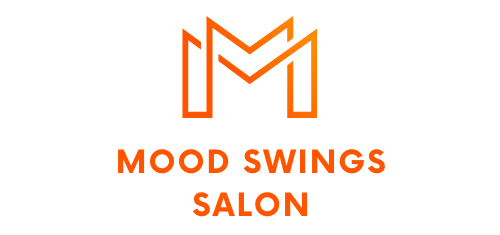How to Implement User-Generated Content in Marketing for UK Boutique Hotels?

User-generated content (UGC) is an increasingly popular tool in marketing. It not only gives customers a voice but also presents an opportunity for brands to be more authentic and relatable. For UK boutique hotels, where the guest experience is paramount, utilizing UGC can be a game-changer. But how does one implement UGC in their marketing strategy effectively? Let’s delve into the matter and unravel the techniques.
The Power and Influence of User-Generated Content
User-generated content is any content—photos, videos, posts, reviews, etc.—created by people, not companies. This type of content is powerful because it’s genuine and trustful. The first-hand experiences shared by guests act as a persuasive form of online word-of-mouth marketing, influencing prospective customers’ decisions.
En parallèle : How to Build a Resilient Supply Chain for UK Pharma Post-Brexit?
Platforms like Instagram have made sharing UGC incredibly easy. People love posting about their travel experiences, and hotels can leverage this to amplify their brand presence online. By incorporating UGC into your marketing strategy, you foster a community of brand advocates who contribute to your online reputation and SEO value.
Encouraging UGC from Hotel Guests
The first step in implementing UGC is encouraging your hotel guests to create and share content. By infusing an element of fun into the guest experience, you can inspire guests to document their stay and share it on their social media platforms.
A voir aussi : What’s the Potential of Edge AI in Enhancing UK Retail Customer Experience?
One way to do this is by creating Instagrammable spots in your hotel. Think of unique design elements, picturesque views, or custom-made art installations that people will want to photograph. The more photo-worthy spots, the better.
Another tactic is to incentivize content sharing through contests or loyalty points. For example, guests could be entered into a monthly draw for a free night’s stay if they post their photos with a specific hashtag.
Don’t forget to always ask for permission before sharing UGC on your hotel’s social media platform. Not only is this a legal requirement, but it also shows respect for your guests’ privacy.
Showcasing UGC on Your Brand’s Platforms
Having encouraged your hotel guests to produce and share content, the next step is showcasing this UGC on your brand’s platforms. This can be your hotel’s website, blog, or social media pages.
UGC gives potential customers a realistic glimpse of what to expect from your hotel. Feature guest photos on your hotel’s Instagram, share their experiences on Facebook, or include guest reviews in your email marketing. This not only increases your content pool but also builds trust with potential customers.
When curating UGC, prioritize content that aligns with your brand image. If your hotel promotes itself as a tranquil wellness retreat, choose guest content that underscores this narrative.
Integrating UGC into Your Overall Marketing Strategy
While UGC can be a great marketing tool on its own, it should not be seen as a standalone strategy. Instead, it should be integrated into your overall marketing plan.
Consider how UGC can complement your other marketing efforts, from SEO to email marketing. For instance, UGC can improve your SEO by increasing the amount of fresh, relevant content associated with your brand. This can help your hotel show up more prominently in online search results.
Alternatively, you can include UGC in your email marketing to add a personal touch. Showcasing genuine guest experiences can make your emails more exciting and relatable, increasing open rates and engagement.
Monitoring and Evaluating UGC
Finally, it’s crucial to monitor and evaluate the UGC you receive. This will help you understand what type of content resonates with your audience and what doesn’t. Monitoring UGC can also provide valuable insights into what guests love about your hotel, as well as areas where you could improve.
Regularly review the UGC shared by your guests. Keep an eye on the comments and likes they receive, as this can indicate the kind of content that engages your audience.
Carefully implementing UGC in your marketing can transform your boutique hotel’s online presence. Through authentic guest experiences shared on platforms like Instagram, you can build a community around your brand and increase trust among potential customers. Remember, when it comes to UGC, authenticity is key, and nothing speaks more honestly than the voice of a satisfied guest.
Utilising Influencer Marketing to Boost UGC
In the era of digital marketing, influencers have become a powerful tool for brands to reach their target audience. In fact, influencers can be instrumental in encouraging user-generated content (UGC) for boutique hotels.
Influencer marketing is essentially a collaboration between a brand and a popular figure on social media, who has a significant following which aligns with the brand’s target audience. The influencer promotes the brand’s offerings, often in a subtle and authentic way, that resonates with their followers. Boutique hotels can leverage this strategy by inviting influencers to stay at their establishments and share their experiences with their followers.
In this kind of collaboration, the influencer shares posts about their stay, capturing unique aspects of your hotel, like the interior design, the food, or the surrounding landscape. This is how they generate content for your brand. Their followers, who trust the influencer’s recommendations, are likely to share these posts, further amplifying your brand’s reach and visibility.
However, it’s essential to ensure that the collaboration feels authentic to maintain trust. The influencer should align with your brand values and aesthetics, and their content should seem natural, not overly promotional. Additionally, any influencer content should be disclosed according to advertising standards to maintain transparency.
Enhancing Brand Awareness with UGC Platforms
UGC platforms can be a treasure trove for boutique hotels looking to boost their brand awareness. These platforms, such as Tribe, Yotpo, or TINT, are designed to collect, curate, and display UGC, making it easier for brands to leverage this powerful form of media marketing.
By utilizing a UGC platform, your hotel can easily gather and showcase content generated by your guests. These platforms often have features that allow you to request permission to share content directly, adhere to privacy laws, and respect user rights.
Furthermore, these platforms offer analytics tools to help you measure the effectiveness of your UGC efforts. You can track the engagement of each post shared, view post performance metrics, and gain insights about your audience’s interests and behaviors. This valuable data can help you optimize your UGC strategy and make data-driven decisions for your marketing efforts.
To conclude, UGC is an integral part of hotel digital marketing. By encouraging guests to generate content and showcasing it on your platforms, you can enhance your brand’s authenticity and build a more personal connection with your audience. Moreover, integrating UGC with influencer marketing and utilizing UGC platforms can significantly boost your hotel’s brand awareness and credibility. With a thoughtful and strategic approach, UGC can be a game-changer for your boutique hotel’s marketing strategy.
